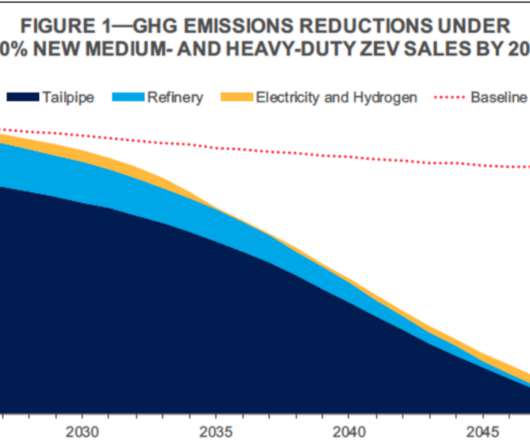GFEI report suggests $2T savings from fuel economy improvements in ICE vehicles through 2025 can help fund long-term transition to plug-ins
Green Car Congress
NOVEMBER 8, 2013
Plug-in electric vehicles are promising and sales have started, but it will take time to reach very large volumes, and will likely require strong incentives over the coming decade to reach a fully competitive point. An alternative to a feebate that could raise similar revenue is raising fuel taxes by around $0.07 per liter ($0.26/gallon



















Let's personalize your content